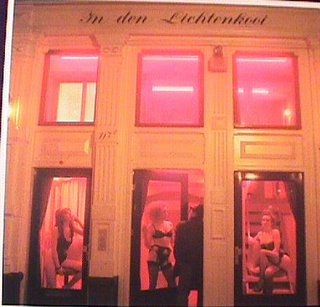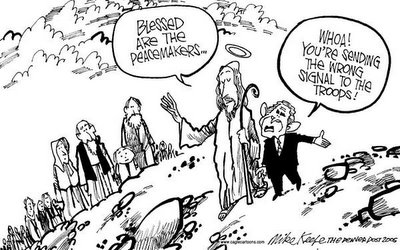 Sometimes things don't work out exactly as I plan. I idealize super-spiritual events and pray for ground-shaking God-moments... they don't always come.
Sometimes things don't work out exactly as I plan. I idealize super-spiritual events and pray for ground-shaking God-moments... they don't always come.Two weeks ago I went up to Portland for a friend's birthday party. I knew there would be homosexuals and Buddhists, liberals and Darwinists there – all the most interesting kinds of people I seldom encounter in my church.
I planned on bringing up an assignment I was working on for a seminary class: designing a postmodern church plant. In my mind I envisioned exciting, stimulating conversation – delving into the very nature of faith and community. I wondered about the fascinating perspectives I might encounter…
Little of the spiritual talk I had hoped for took place. Whether led by fear, complacency, or the Holy Spirit, I couldn’t find the proper time to introduce my class project. After cutting up a cake, we went out for drinks and somehow ended up at a gay nightclub.
And when I say "gay," I mean really gay!
We made our way through a large, open bar area that connected to a dance floor. Men were everywhere, dancing, laughing and drinking; an occasional woman stood out prominently in a few of the groups. We entered a lounge area in the back that was fairly well lit, comfortable, with couches, cushy chairs and even a Christmas tree.
What struck me sitting there with my three straight friends (our gay companions stayed on the dance floor) was the unspoken aura that filled the room. It wasn't happiness or fun or even sadness. It was more like partial relief. A tense undercurrent still seemed to permeate the air. These men looked and acted like distrustful refugees.
As we talked, I watched two young men enter, glancing around the room. They said nothing to each other as they carefully sat down in two overstuffed chairs facing one another. I thought I caught a brief look of ease as they began to adapt to their surroundings, and if I could have put words to what I witnessed they would have said, "I think it’s okay. We're safe now."
I was in a bomb shelter. A refugee camp. A place where the wounded and broken came to hide and confide - to find solace or escape.
You can say what you want to about the theology or legality of homosexuality. I’m initiating no-such discussion. Instead, I raise the question: if not a gay bar, where could these men go to be broken, wounded and imperfect? Again, regardless of theology, can the church be a place for solice? Can we let these hurting souls recoup in a safe, respectful, gentle atmosphere? Or must we break down their walls of sin before we allow any relaxation or decompression to occur?
I don't think a gay nightclub is a good place for a gay man to find healing, wholeness or safety. Yes, he can be gay without fear of judgment in such an environment, but no one can be transparent in a meat market - gay or straight. No one can put down the facade when they're being checked out and sized up by potential suitors (one of the reasons I think many church youth and young adult groups are so dysfunctional - but that's a whole separate can of worms).
Maybe we could take a little break from the gay topic in church. Maybe if we let people come in and feel safe, the Holy Spirit would do some amazing, powerful things. Maybe we jump the gun on the Holy Spirit. Maybe we don't trust the Spirit to speak without our vulgar voices chiming in at a whim.
I don’t think this issue is simple or black-and-white. I don’t even think it’s ready to be resolved in our Christian culture yet. I also don’t think it would be appropriate for every Christian to walk into a gay bar – maybe it wasn’t appropriate for me. But right or wrong, I’d rather take chances to discover these refugees in hiding than stay so safe that I never meet the people I once called “lost.”



